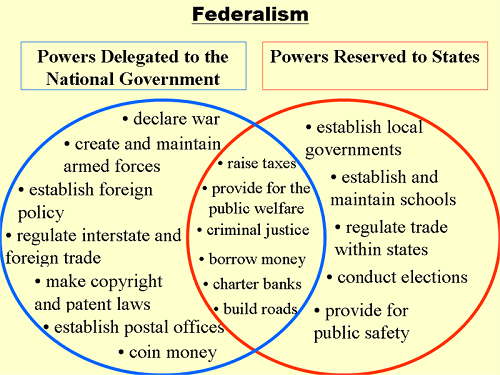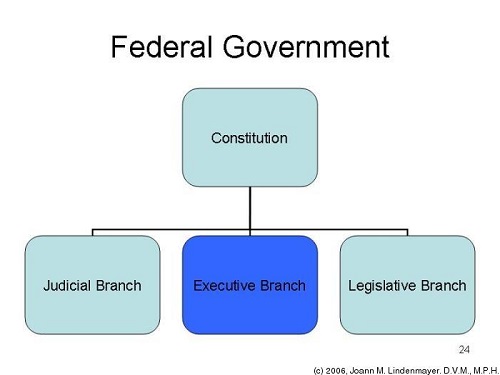Difference Between Federal and National Government

Federal vs. National Government
Both “federal” and “national” are terms used to describe governments that are being ascribed by the many governments around the world. There is a very small distinction between a federal and national government. National governments, for instance, occupy the highest level of governance. A national government encompasses all other, lower levels of government, such as local, state, and regional. Since it is the highest level, all actions or movement implemented at this level directly affects all of the forms of government under its jurisdiction.
A national government is also referred to as the central government. As the highest level of governance, it consists of people who are put in very prominent, powerful, influential, and high positions like the President, Vice-President, Prime Minister, Monarch, or other people that function as representatives or as head of state. The national government also includes the lawmaking body as well as the judiciary and other branches of a particular country’s government.
The national government, as its name implies, concerns the issues or jurisdiction of the whole nation. The jurisdiction of the national government is also vast and comprised of departments or offices that are designed for public service, and the resources are often vast enough to accommodate every citizen of that country. Laws enacted at the national level cannot be repealed (unless another national law renders the former law invalid), and they are carried out in the lower forms of government.
The federal government, on the other hand, is a particular system of government characterized by having a central (or national) government, and is composed of lower governments or units, particularly the state government. The federal government is specifically associated with a federation.

In this type of government, power is shared with the national government, although both governments can remain independent of each other depending on the scope of the issue or concern. Simply put, in a federal government, the national government is the highest component level.
If a particular country adopts the federal system, the federal government is also referred to as the national government. In other countries, “national government” is the term used to refer to the government itself.
Summary:
1.The main difference between a national and federal government is in their nature. The national government is the highest level of governance within a country, while the federal government is a type of government a country can adopt. A national government is a component of any type of government, which means that it is a part of the federal government.
2.The national government has the widest jurisdiction and largest resources. It always concerns the country or nation as a whole. Any action in the national government – like a national law, issues, and concerns – affects all the remaining smaller and lower government units in a particular type of government. The national government often has a figurehead that represents the people depending on the type of government that the country espouses.
3.The national government is a part of the federal government. It exists alongside the state government. The national government is headed by a representative, while the state government has its own authorities or leaders in its particular jurisdiction.
4.In countries that have adopted the federal system, the national government is often referred to as the federal government due to the latter’s scope of jurisdiction and power, as well as to separate the national government from the state government. In countries that have not adopted the federal system, “national government” is the term not only for the top government, but also the government as a whole.
- Differences Between Fraternity And Sorority - January 8, 2014
- Differences Between Lucite and Plastic - January 7, 2014
- Differences Between Oil and Butter - January 6, 2014
Search DifferenceBetween.net :
6 Comments
Leave a Response
References :
[0]https://apgovernmentchs.wikispaces.com/Major+Trends+in+Federalism
[1]http://ocw.tufts.edu/Content/39/lecturenotes/451934/451951

I am of some foreign and mixed ethnicy, I speak a foreign language my tounge has been tied down my whole life, I speak a foreign language.
Thank you
Rhonda
I need to know who I am? Where I belong? Where do I go? I have to knowthe truth
*I believe you should just have fun, m8. Allahu akbar my sister
I’m adopted, now I know i’m not Asian. Don’t listen to Mr. Janus, he’s just a grumpy frump who didn’t get his Chick-Fil-A biscuit but
Instead he had an abortion.
In THE FEDERALIST PAPERS, the argument is CLEARLY MADE that pur CONSTITUTION makes us a FEDERAL government. STATES RETAIN THEIR RIGHTS AS FREE AN INDEPENDENT STATES. The issue of of SLAVERY was addressed as an original condition to be ELIMANTED by TAXATION by the “1808 Compromise” in ARTICLE 5. It references ARTICLE 1 “Importation of persons” clause and is in everyones’ “Constitution booklet”.
The FEDRALIST PAPERS also clearly states, “Stztes neither lose any of their rights, nor are they RELEASED from any of their OBLIGATIONS, by their change in government to the NEW CONSTITUTION.
NATIONAL MANDATES, such as OBAMACARE and COMMON CORE AGENDAS in schools are therefore UNCONSTITUTIONAL under STRICT ADHERNCE to the the ORIGINAL CONSTITUTION, as education and hospitals are STATE INSTITUTIONS. and NOT FEDERAL, therefore a RIGHT delegate to the STATES…”STATES RIGHTS”.
SOCIALISM is a NATIONAL MANDATE and NOT a part of a our FEDERLIST CONSTITUTION. In the EUROPEAN UNION, each State has been allowed to choose its own “Socialist helsthcare design” but as “free healthcare” was still “mandated”, it ALSO is not FEDERALIST IN NATURE.
For THIS REASON, the Socialist Democrats want, not to HONOR the Constitution, but to re-write it. YOU WILL LOSE SOME OF YOU RIGHTS OF CHOICE.
At the Constitutional Convention the first vote taken was whether a national, as opposed to a federal, government ought to be established. If passed this would repudiate the Articles of Confederation. Thus, the delegates “generally agreed that the objects of the union could not be secured by any system founded on the principle of a confederation of sovereign states”. There was a distinction between National and Federal back in 1787 that is no longer applies. In the Articles all of the power was vested in the states with a weak Congress constituting the federal aspect of government. They passed laws that applied to all of the states, but were constantly ignored or overridden by state legislatures. The federal government had no real power and the nation was falling apart. Madison, in his Virginia Plan, set the course for changing from a federal to a national government. The National government was supreme. Now, there is no real difference in the terms. We see the Federal government as the national, or central government. The states still maintained powers not prohibited to it by the Constitution. These residual powers give each state their unique flavor, as can be seen when traveling this great nation. An example is fireworks. I grew up in New York where the sale of fireworks was illegal. For the 4th of July many New Yorkers would cross the border to Pennsylvania, where it was legal, and buy a truck load of fireworks to bring back home. Same with purchasing intoxicating beverages. In New York alcohol was not sold in super markets; only in Liquor stores. When we moved to N. Carolina we were surprised to see wine being sold in their grocery stores. Giving states their little taste of sovereignty was part of the genius of our Founding Fathers. No other nation on earth was able to keep a republic for 235 years.